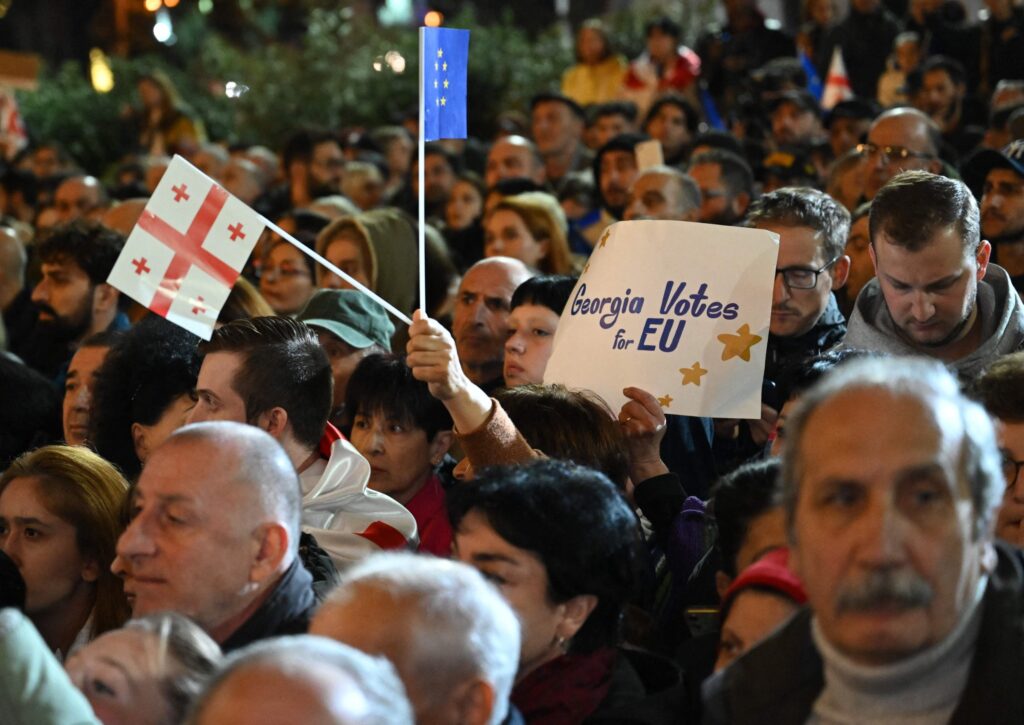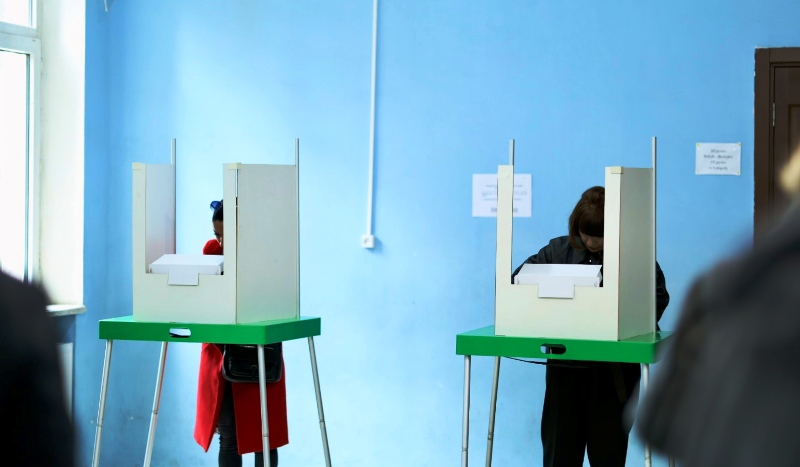On October 26, 2024, Georgia held parliamentary elections that many saw as a referendum on the country’s direction amid its geopolitical tug-of-war between Russia and the West. The election exposed deep political divides, with both the ruling Georgian Dream (GD) party and the opposition framing the outcome as a defining moment for Georgia’s democratic and European future.
Election Overview and Key Players
Georgian Dream — led by Prime Minister Irakli Kobakhidze — positioned itself as a force of stability, advocating for pragmatism in foreign policy, especially with Russia, to ensure national peace. Kobakhidze celebrated GD’s victory, viewing it as an endorsement of GD’s approach to maintaining regional stability. However, GD failed to secure a constitutional majority (54% of votes) necessary to pass sweeping reforms, including initiatives to curb opposition influence. GD’s leadership sees itself as Georgia’s stabilizer, prioritizing cautious progress on European integration, while also managing tense relations with Russia
President Salome Zourabichvili, a former GD-backed candidate, now stands as a vocal critic of the government. Zourabichvili condemned the election process and declared that GD’s victory signifies growing Russian influence over Georgia. She called for peaceful protests, urging citizens to reject the results as a step backward for democracy. Her stance highlights the tension between GD’s emphasis on “pragmatic” stability and her push for stronger alignment with Europe. By positioning herself as the voice of European aspirations, Zourabichvili represents a faction concerned that GD’s policies compromise Georgian sovereignty in favor of closer Russian ties
Political Tensions and International Concerns
The 2024 election has highlighted Georgia’s internal polarization. Observers from the OSCE and European Parliament reported that while Election Day itself was managed adequately, the lead-up to the election was marred by irregularities. The OSCE noted the misuse of public resources by GD, vote-buying, and reports of voter intimidation. U.S. Secretary of State Antony Blinken and European Council President Charles Michel raised concerns over these issues, emphasizing that transparent democratic practices are crucial for Georgia’s EU candidacy
One of the most divisive pre-election laws was the “foreign agents” law, which requires any NGO or media organization receiving over 20% of its funding from abroad to register as a foreign-affiliated entity. European and American officials condemned the law as undemocratic and reminiscent of Russian legislation aimed at curtailing free speech and civil society. Critics argue that such measures erode democratic foundations and hinder Georgia’s EU membership progress
The Path Forward: Domestic Challenges and Geopolitical Stakes
In response to these divisions, Zourabichvili has continued to call for public protests, seeing GD’s victory as a threat to Georgia’s pro-European aspirations. Georgian Dream, meanwhile, maintains its commitment to European integration, with Prime Minister Kobakhidze expressing hope for a “reset” in relations with Europe, aiming for progress starting in early 2025. However, the government’s alignment with Russian-style policies, along with Western criticism, casts doubt on Georgia’s trajectory toward EU membership.
Western diplomats underscore that Georgia must adhere to democratic principles to solidify its European future. Josep Borrell, EU High Representative, stressed that “free and fair elections” and adherence to rule of law are prerequisites for EU membership, urging transparent investigation into reported electoral violations. The U.S. and EU’s stance signals that Georgia’s democratic practices will determine its place within the European fold
Conclusion: A Nation at a Crossroads
Georgia’s 2024 elections underscore the nation’s struggle to balance stability with democratic advancement. GD’s approach aligns with caution in the face of Russian influence, while opposition forces and Zourabichvili push for more definitive steps toward EU integration. International observers and political leaders view Georgia’s commitment to democratic transparency as essential for maintaining European aspirations amid regional instability.
In the months ahead, the EU and OSCE’s full assessments will likely influence how Georgia navigates these tensions, determining whether it can address domestic polarization and secure its place within the European alliance.


